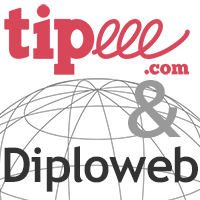Estonia was the first of the former soviet socialist republics to join the euro zone at the start of this year. So what are the economic characteristics of the 17th country to adopt the single European currency ?
Estonia has an industrial tradition that is partially a legacy of the Soviet era, especially in the north. After rising at an annual rate of around 7% in the first half of the decade since 2000, Estonian GDP plummeted by nearly 20% between the end of 2007 and autumn 2009, in the wake of the financial and economic crises.
Estonia is the least wealthy of the euro zone nations. In 2009, its GDP per capita, measured in purchasing power parity (PPP), was 64% of the EU-27 average, ranking it 22nd among the 27 member nations.
We should however note that Estonia is ahead of other nations that joined the EU in 2004 and 2007 : Poland, Lithuania, Latvia, Romania and Bulgaria. There are, however, countries that, like Estonia, joined in 2004 and which are showing better results : Hungary and Slovakia (73%, euro zone members since 2009), Malta (81%, euro zone member since 2008), the Czech Republic and Slovenia (88%, euro zone members since 2007) and Cyprus (98%, euro zone member since 2008). By comparison, France has had a GDP per capita in PPP of 108 (EU-27 base 100) since 2009.
Estonia has nonetheless enjoyed the advantages of a tight economic policy adopted prior to the crisis, the guarantee of the Scandinavian banks, the population’s extraordinary ability to face up to difficulties, and an increased injection of funds from the EU. In 2010, transfers from the EU may have amounted to nearly 8% of Estonian GDP, with a sharp increase in funds from the Common Agricultural Policy budget. Happily, Estonia has stood out for several years as one of the least corrupt of the twelve new EU entrants. It is therefore reasonable to hope that these community funds will be put to good use.
In the mean time, the forecasts for growth of GDP in volume for 2010 show Estonia in 9th place among the EU members, with a predicted rise of 2.4% on the previous year. Its relative geographical and economic proximity to Sweden – which has the highest forecast figure for the EU – probably goes some way to explaining this. Whatever the case, Estonia is doing better than the EU-27 average (1.8%)… and better than France.
Above all, Estonia is emerging from the crisis with a budgetary deficit standing at less than 3% of GDP and a public debt that is also less than 10% of GDP.
This did not prevent Estonia from having an unemployment rate of 16.2% of its active population at the end of 2010, as defined by the International Labour Organization (ILO). A significant proportion of the unemployed no longer receive benefit. Household consumption was still low for much of 2010 as credit was no longer as easily available as before the crisis. However, Q4 2010 brought signs that households were regaining confidence. The economy appears to be picking up better in industry than in agriculture and services. Some observers predict annual growth of GDP in excess of 3% for 2011, driven by the combined effect of exports and a gradual upturn in internal demand.
It is against this economic backdrop that Estonia has joined the Euro zone.
Copyright 2011-Verluise. Translation Alan Fell.
. Pierre Verluise, Zone euro : l’Estonie,17e membre le 1er janvier 2011 Voir
Pour ne rien rater de nos nouvelles publications, abonnez-vous à la Lettre du Diploweb !
Direction

Directeur, P. Verluise
Conseil scientifique
Mentoring et coaching géopolitique
Présenter le Diploweb.com
Charte du site
Auteurs
Proposer un article
Retrouvez la chaîne Diploweb sur :











